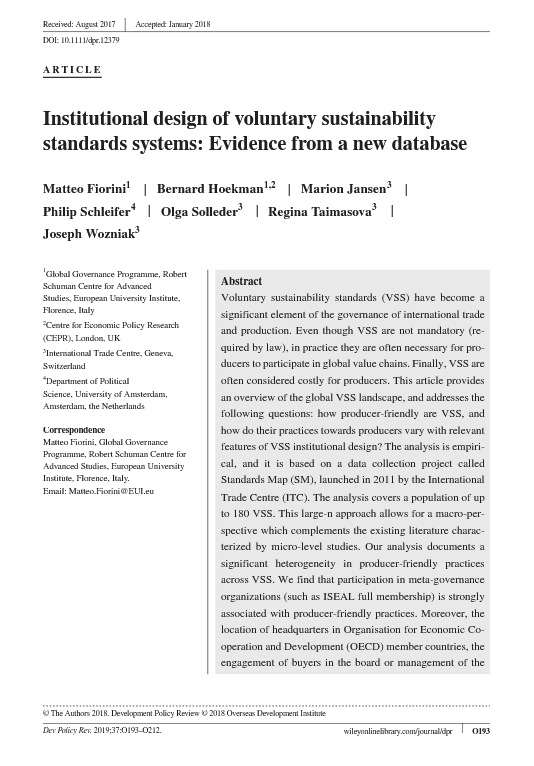︎

Marion Jansen
OECD
Dr. Marion Jansen is Director of the Trade and Agriculture Directorate (TAD) at the OECD since 14 September 2020. Before joining the OECD, Dr. Jansen was the Director for the Division of Market Development and Chief Economist at the International Trade Centre (ITC) in Geneva having also been their Section Chief for Research and Strategies for Exports (2014-2018). She was responsible for ITC’s flagship publication, the SME Competitiveness Outlook, oversaw ITC’s contributions to G20 processes, led the agency’s export strategy work and oversaw ITC’s work on trade and firm level data. Prior to this, she held different positions in the Economic Research and Statistics Division of the World Trade Organization (2012-2014; 1999-2009). As a counsellor, she provided economic advice to WTO dispute settlement panels, co-managed the WTO Chairs Programme and provided lead contributions to the WTO’s World Trade Report. From 2009 to 2012, Marion Jansen was the Head of the Trade and Employment Programme at the International Labour Organization in Geneva. In this role, she oversaw research, policy advice and technical assistance on trade and employment. She also developed a stream of work on skills for trade and economic diversification. From 1998-1999 Marion Jansen worked in the private sector (Maxwell Stamp PLC, UK). Ms. Jansen has published widely on international trade and global governance, including on regional integration, services liberalization and agricultural trade. She has lectured in multiple academic institutions, including the University of Geneva and the World Trade Institute. Dr. Jansen, holds a Doctorate Degree in International Economics from the Pompeu Fabra University (Spain); a Master's Degree in International Economics from the Universität Konstanz (Germany) and a Bachelor's Degree in Business Administration and Economics from the Universität Passau (Germany). She also has a Bachelor’s Degree in International and Developmental Economics from the Université Toulouse 1 Capitole (France).
MORE ABOUT MARION JANSEN >2021
Mauro Boffa, Marion Jansen, Olga Solleder
Participating to Compete: Do Small Firms in Developing Countries Benefit from Global Value Chains?
Standard trade theory suggests that the profile of exporting firms is characterized by large
firms which dominate domestic productivity distribution. Large manufacturing multinationals have
increased their productivity by participating, creating and shaping global production networks.
In recent d...
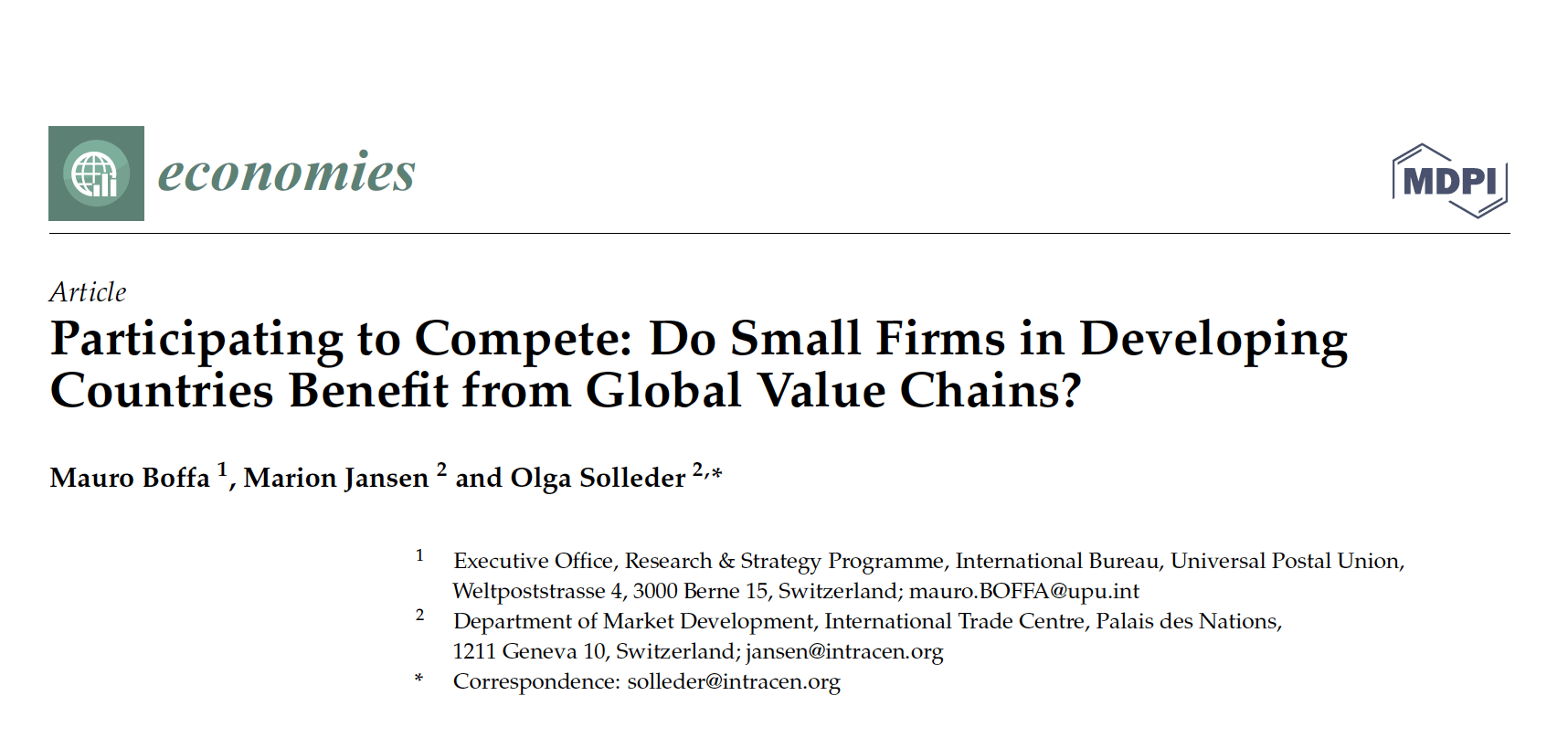
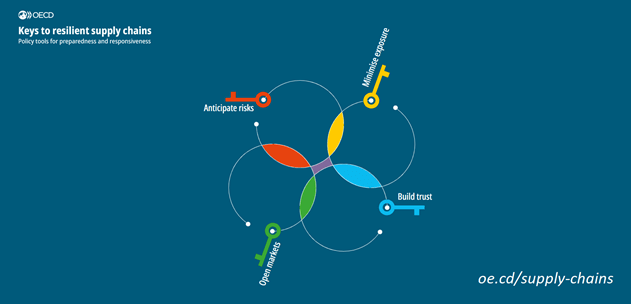
2020
Justine Falciola, Marion Jansen, Valentina Rollo
Defining firm competitiveness: A multidimensional framework
Defining and measuring competitiveness remains a subject of interest as well as debate: policy makers need to understand how competitive their country is relative to others, and how their competitive position evolves overtime (Fagerberg & Srholec, 2017). As such, well-known indicators of country...
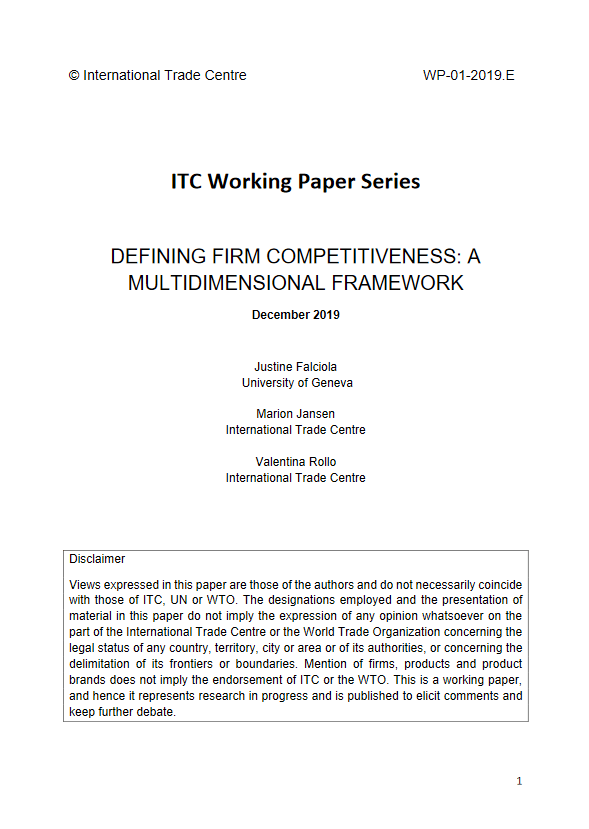
2019
Mauro Boffa, Marion Jansen, Olga Solleder
Do we need deeper trade agreements for GVCs or just a BIT?
The paper investigates two policies geared towards stimulating and shaping global value chains (GVCs), namely deep regional trade agreements (DRTAs) and bilateral investment treaties (BITs). In an augmented gravity model, we test the impact of both policies on a variety of trade in value added indic...
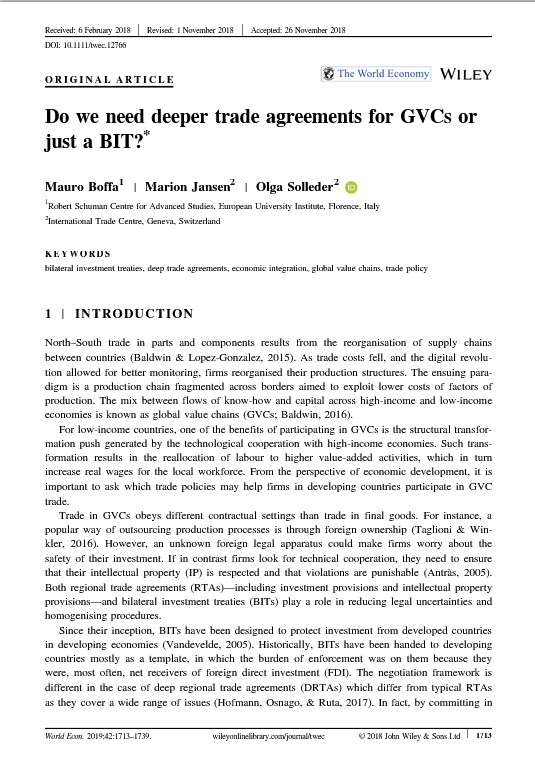
2019
Matteo Fiorini, Bernard Hoekman, Marion Jansen, Philip Schleifer, Olga Solleder, Regina Taimasova, Joseph Wozniak
Institutional design of voluntary sustainability standards systems: Evidence from a new database
Voluntary sustainability standards (VSS) have become a significant element of the governance of international trade and production. Even though VSS are not mandatory (required by law), in practice they are often necessary for producers to participate in global value chains. Finally, VSS are often co...
